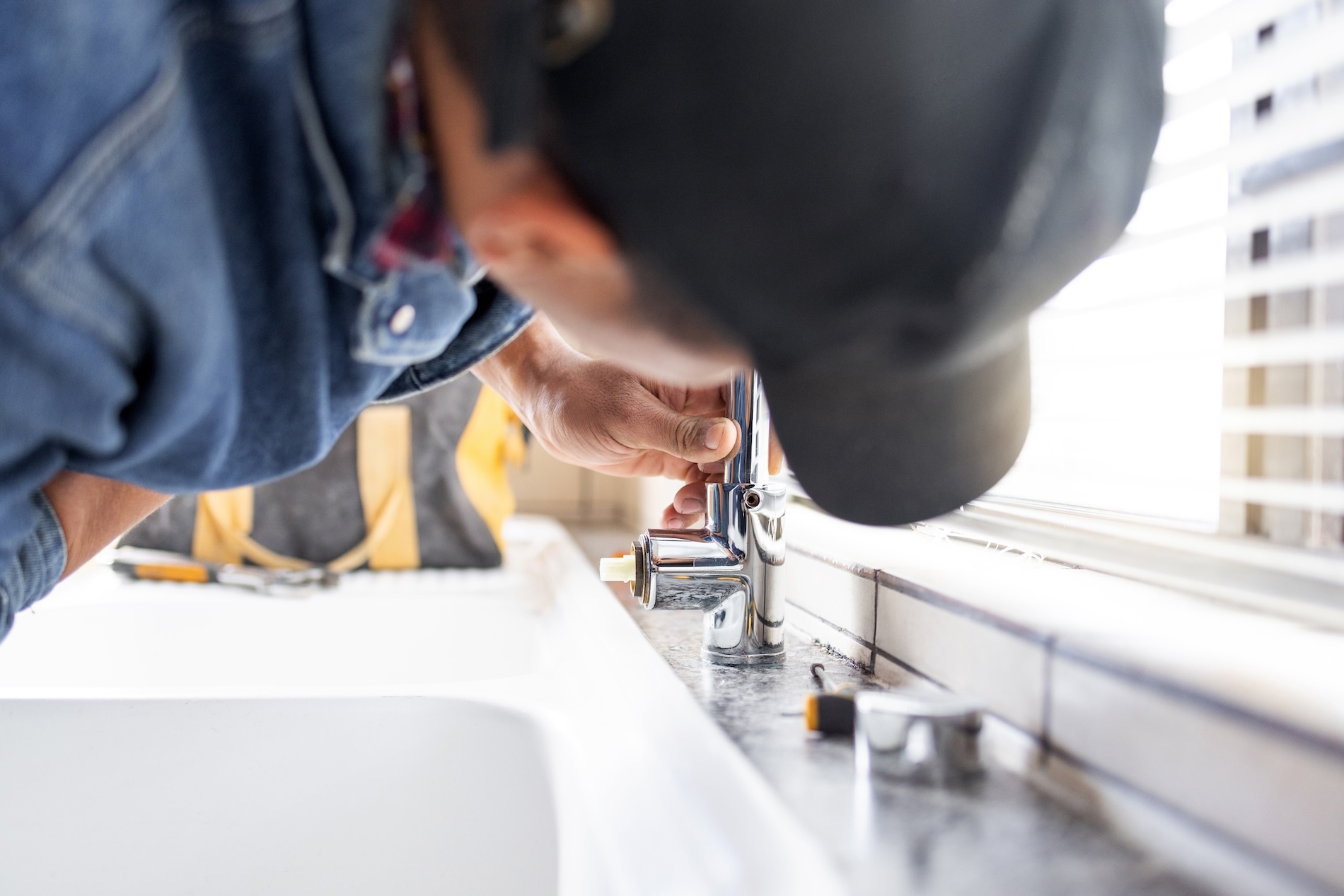
Plumbing leaks are a common but preventable issue that can cause significant damage to your home if left unchecked. By taking proactive steps, you can protect your home from the potential mess and cost associated with leaking pipes. Implementing regular maintenance and mindful practices can go a long way in keeping your plumbing system in top shape.
Leaks in your plumbing system often start small but can quickly escalate into bigger problems if unnoticed. A tiny drip can waste gallons of water over time, leading to higher utility bills and water damage to your property. Regular checks and maintenance can catch these minor issues before they escalate.
Besides saving money, preventing plumbing leaks also ensures that your home stays safe and dry. Water damage can affect the structural integrity of your house and create an environment for mold to grow. This article will guide you through practical steps to keep your plumbing system leak-free, from regular inspections to maintaining the right water pressure and insulating pipes. By following these tips, you can save yourself from the headache and expense of major plumbing repairs down the line.
Regularly Inspect Your Plumbing System
One of the most effective ways to prevent plumbing leaks is through regular inspections of your plumbing system. By taking a little time each month, you can catch potential problems early before they become serious issues. Here are some steps to guide your inspections:
1. Check Visible Pipes: Look under sinks, in the basement, and around appliances like washing machines and dishwashers. Be on the lookout for any signs of moisture, water stains, or rust on pipes that could indicate a leak.
2. Listen for Drips: Sometimes, you can hear a plumbing leak before you see any evidence of it. Make it a habit to listen for dripping sounds in your home, especially at night when the house is quieter.
3. Inspect Faucets and Showerheads: Examine all faucets and showerheads closely. A slow drip can waste a significant amount of water over time and may indicate issues with the fixture or the connectors.
4. Monitor Your Water Bill: An unexpected increase in your water bill can be a sign of a hidden leak. Keep track of your bills and investigate any unusual spikes in water usage.
5. Test Your Toilets: Toilets can be a common source of hidden leaks. Add a few drops of food coloring to the tank and wait 15 minutes without flushing. If you see the color in the bowl, your toilet has a leak.
By conducting regular inspections, you can maintain a watchful eye on your home’s plumbing and address any issues promptly, preventing small leaks from becoming big problems.
Maintain Proper Water Pressure
Maintaining proper water pressure is essential for keeping your plumbing system in good shape and preventing leaks. High water pressure puts undue stress on pipes, fixtures, and appliances, which can lead to leaks over time. Here are some ways to manage and maintain the correct water pressure in your home:
1. Install a Pressure Regulator: A pressure regulator can help maintain stable water pressure throughout your home. If you don’t already have one, consider having a professional install it to keep the pressure within safe limits.
2. Use a Pressure Gauge: Purchase an inexpensive pressure gauge from a hardware store to check your home’s water pressure. Attach it to an outdoor faucet to get a reading. Ideal water pressure should be between 40-60 psi. If it’s consistently higher, you may need to adjust the pressure regulator.
3. Check for Pressure Surges: Pressure surges can occur and cause dramatic rises in pressure. If you notice sudden bursts of high pressure, it might be due to issues like malfunctioning pressure regulators or municipal supply problems. Address such surges promptly to protect your plumbing system.
4. Reduce the Use of Water-Heavy Appliances: Running multiple water-heavy appliances (like washing machines and dishwashers) simultaneously can spike water pressure. Stagger their use to avoid stressing the pipes.
5. Inspect for Mineral Buildup: High water pressure can sometimes be the result of mineral buildup in pipes and fixtures. Regularly check and clean your plumbing fixtures to ensure uninterrupted water flow and pressure.
By keeping your water pressure in check, you can extend the life of your plumbing and prevent the wear and tear that leads to leaks. Maintaining proper pressure is a proactive step toward a leak-free home.
Avoid Using Chemical Drain Cleaners
Using chemical drain cleaners may seem like an easy way to clear clogs, but these products can do more harm than good. The harsh chemicals can corrode your pipes, leading to leaks and potentially severe damage over time. Here are better alternatives for keeping your drains clear:
1. Use a Plunger: A simple plunger can often clear minor clogs in sinks, tubs, and toilets. This method is safe and doesn’t involve harmful chemicals.
2. Try a Drain Snake: Also known as a plumber’s auger, a drain snake is a tool designed to clear blockages deep in the drain. It’s highly effective for tougher clogs and doesn’t damage pipes.
3. Homemade Solutions: A mixture of baking soda and vinegar can be an effective natural drain cleaner. Pour baking soda into the drain, followed by vinegar, and let it sit for 15 minutes before flushing with hot water. This method helps break down clogs without harming your pipes.
4. Preventive Measures: To avoid clogs in the first place, use drain screens to catch hair and food particles. Also, avoid pouring grease or oil down the drain, as these substances can solidify and cause blockages.
By opting for safer alternatives and maintaining good habits, you can keep your drains clear without risking damage to your plumbing system.
Insulate Pipes During Cold Weather
Insulating your pipes during cold weather is crucial for preventing them from freezing and eventually bursting. Burst pipes can lead to significant water damage and costly repairs. Here are some steps to insulate pipes effectively:
1. Identify Vulnerable Pipes: Pipes that are exposed to the outdoors, such as those in basements, attics, garages, and exterior walls, are more susceptible to freezing. Start by inspecting these areas for uninsulated pipes.
2. Use Pipe Insulation: Foam pipe insulation is a cost-effective and easy-to-install solution. Measure the length of the pipes and cut the insulation to fit. Wrap it around the pipes, securing with adhesive or tape. Ensure there are no gaps where cold air can come into contact with the pipes.
3. Seal Cracks and Gaps: Check for cracks or openings in walls, floors, and ceilings near the pipes. Use caulk or spray foam insulation to seal these gaps, minimizing cold air entry.
4. Keep a Consistent Temperature: During extremely cold weather, keep your home thermostat at a steady temperature, even at night. This helps prevent temperature fluctuations that can cause pipes to freeze.
5. Let Faucets Drip: During severe cold spells, allow faucets to drip slightly. Moving water is less likely to freeze and can prevent pressure build-up that leads to burst pipes.
Proper insulation and preventive measures can keep your pipes safe during the winter, reducing the risk of leaks and water damage.
Final Thoughts
Preventing plumbing leaks at home is simpler than you might think. By regularly inspecting your plumbing system, maintaining proper water pressure, avoiding harmful chemical drain cleaners, and insulating pipes during cold weather, you can protect your home from costly and damaging leaks. These proactive measures help ensure the safety and efficiency of your plumbing system, giving you peace of mind.
Taking a few minutes each month to check your plumbing, controlling water pressure, and using safe practices for clearing drains will pay off in the long run. Keeping your pipes insulated during the winter is particularly important for homes in cold climates.
By following these simple steps, you can save on repair costs and avoid the hassle of dealing with plumbing emergencies. Consider scheduling a professional inspection and HVAC maintenance service to ensure your plumbing system is in top condition.
If you need expert assistance with your plumbing, HVAC, or other household needs, contact My Jockey today. Our experienced professionals are here to help with all your home service needs. Protect your home and enjoy peace of mind with My Jockey. Call us now to schedule an appointment!

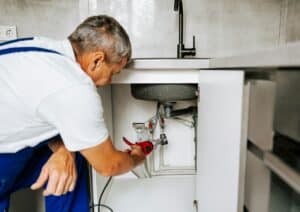
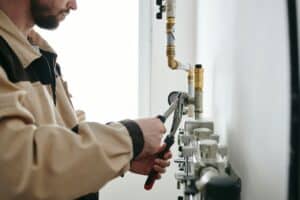
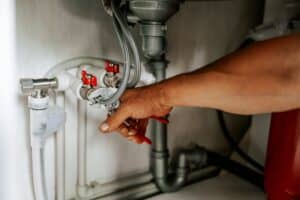
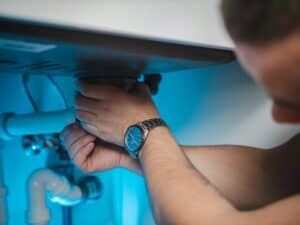
No comment yet, add your voice below!